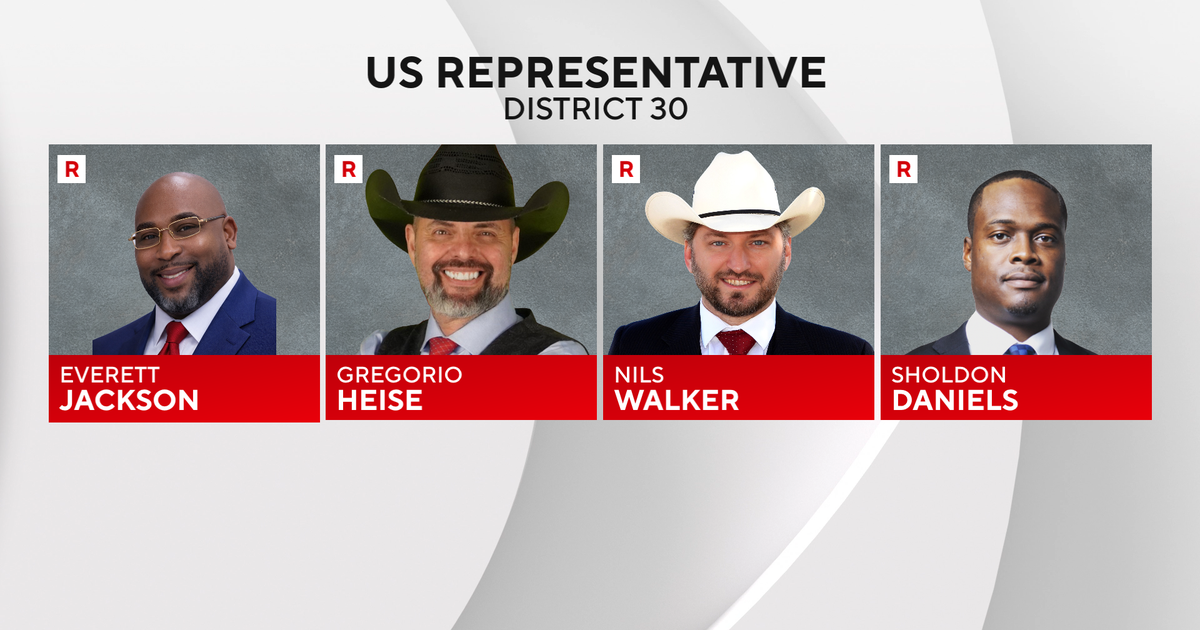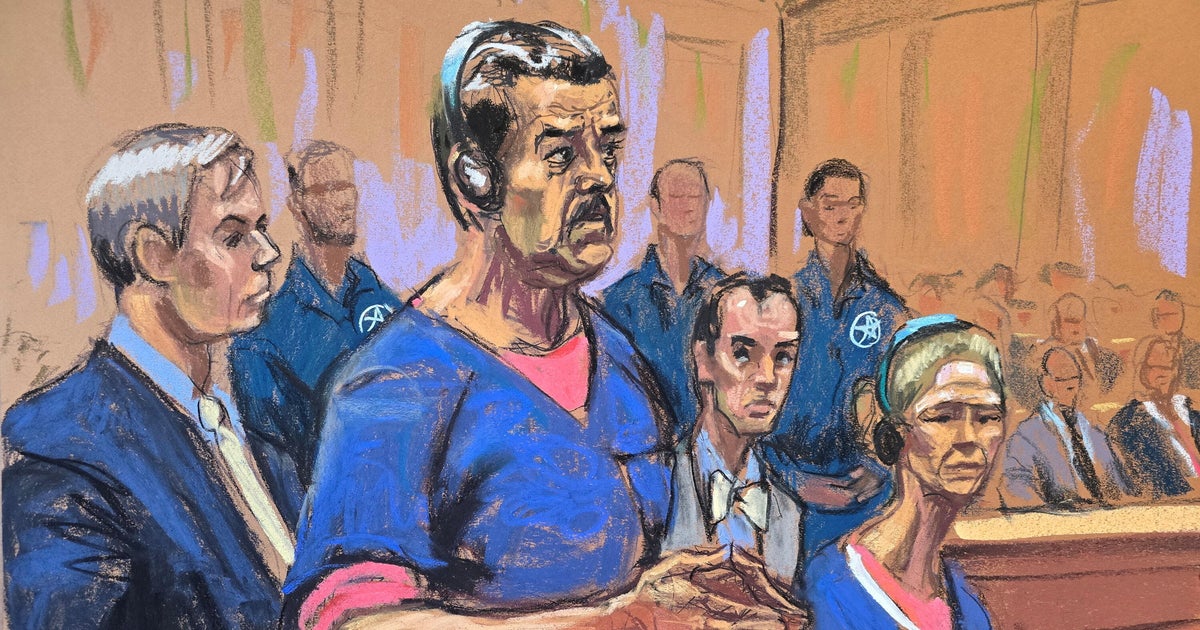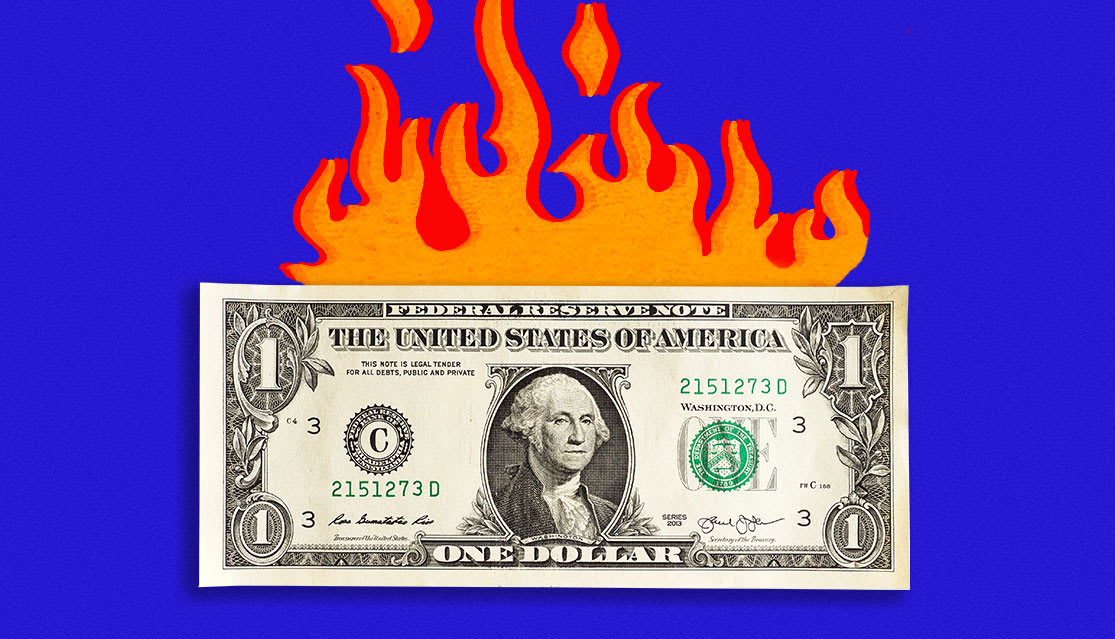Worst inflation since 1982 puts Democrats in political jeopardy
Democrats will defend the smallest House and Senate majorities in decades in the midterm elections, and Republicans have seized on inflation as a key issue. Last year saw the greatest increase in price in nearly 40 years – putting Democrats on the defensive as people across the country feel the strain of higher prices on everyday life from food to gas and paying rent.
Prices are up 7% from a year ago, the fastest pace of inflation since 1982. Price hikes in housing and used cars and trucks were among the increased costs driving inflation, as is the cost of food. Energy prices were also higher than a year ago, though the cost of gas eased a little in December.
As prices soar, Republicans are slamming the Biden administration and congressional Democrats, claiming the increases are the result of Democrats' policies and "reckless spending."
And it appears to be working: 54% of Americans think the U.S. economy is getting worse, while only 15% say it's getting better – 30% say it's the same, according to polling released Wednesday by Quinnipiac University. The poll found just 34% of Americans approve of President Joe Biden's handling of the economy, compared with 57% who do not.
Republicans have pushed back to the Biden administration agenda – refusing to vote for the $1.9 trillion American Rescue Plan and unanimously opposing the nearly $2 trillion Build Back Better agenda. But on the heels of rapid inflation, Republicans have offered few ideas of their own to curtail rising prices.
"Don't erect barriers to reconnecting to work," House Ways and Means Committee Ranking member Kevin Brady told the Washington Post Wednesday when asked what he would like to see the Biden administration do to help families dealing with increased prices. He urged the Biden administration to back off its current support for monthly child tax credit payments, a policy that does not stipulate work requirements.
Meanwhile, many Democratic lawmakers argue their stalled Build Back Better Act would address inflation by lowering the cost of child care, housing, health care and more. But inflation is part of the reason why their spending agenda remains in limbo.
Senator Joe Manchin of West Virginia cited rising inflation when he announced he would not vote for the climate and social spending bill nearly a month ago, freezing its progress in the Senate indefinitely. On Wednesday, he called the latest report on inflation "very troubling."
In response to the latest report on consumer prices, Mr. Biden released a statement saying the report showed there's progress in slowing the rate of price increases, but at the same time, it underscored the administration still has more work to do.
"Inflation is a global challenge, appearing in virtually every developed nation as it emerges from the pandemic economic slump," the president's statement read. "America is fortunate that we have one of the fastest growing economies—thanks in part to the American Rescue Plan—which enables us to address price increases and maintain strong, sustainable economic growth. That is my goal and I am focused on reaching it every day."
The White House appears to be taking inflation more seriously in recent months. It has touted efforts to help fix the supply chain issues, including the backlog at ports and with trucking shipments, promote competition, reduce energy prices with the release from the Strategic Petroleum Reserve and address the semiconductor chip shortage.
Amid the global chip shortage, the price of used cars and trucks was up 37.3% over the course of the year, a key driver of inflation. The price of new vehicles has risen 11.8% since December 2020.
Speaking before the Senate Banking Committee on Tuesday, Federal Reserve Chairman Jerome Powell said he believes higher prices relate for the most part to strong demand and supply constraints stemming from the pandemic. But the Federal Reserve no longer describes inflation as transitory.
"The supply side constraints have been very persistent and very durable," Powell said. "We're not really seeing yet the kind of progress that essentially all forecasters really thought we'd be seeing by now and that's really what's driving it," he added, also noting strong demand.
Powell and Biden administration officials have said they expect those inflationary pressures to last into the second half of 2022, meaning rising prices could continue as voters are heading to the polls.
Powell said if high inflation persists, the Fed will raise interest rates. The majority of the Federal Reserve projects three interest rate hikes this year.
Despite rising prices, the economy added a record-breaking 6.4 million jobs last year, an average of 537,000 a month. And unemployment fell from 6.3% in January 2021 to 3.9% to close out the year.



